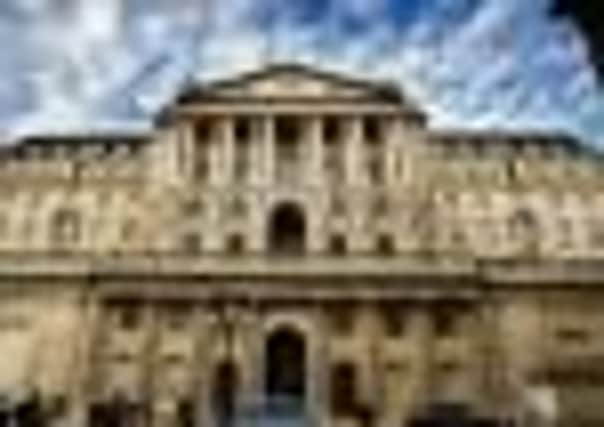Peter Smaill: Take a look through the holy smokescreen


IN 1723, Adam Smith was kidnapped by tinkers. In May 2012, he is due to be figuratively ambushed, but this time by the Kirk, following the deliberations of its “special commission on the purposes of economic activity”.
Whereas Smith contended that the sole end of economic activity should be consumption, the church is being asked to supplant that with “social relations”.
Advertisement
Hide AdAdvertisement
Hide AdPerhaps unsurprisingly, given that John McFall – he of the pugnacious but ultimately ineffectual House of Commons Treasury Committee – sits on this Kirk think-tank, there is no reflection on government failure.
Our banks were well before 2007 regulated by the Bank of England and the FSA, and supervised by his committee. The internationally applied Basle conventions for bank capitalisation were complied with – indeed they were a beacon for artificiality and profit manipulation.
There were ineffectual banking institutes, weak auditors, compliant internal auditors, lickspittle remuneration committees, economists who ignored monetary expansion, and more.
Why now do we think that a corporate state solution made up of these components actually exists, compared to the age-old principle of buyer beware – caveat emptor – and insistence on maximum transparency?
That’s what’s in the plate for the offering on the supply side. On demand, in order to protect “social relations”, a contention is made that “inequality is growing to be unacceptably high”, and must be addressed.
This assertion is backed up by a statistic that since 2000 the average income of the top 10 per cent of earners is now 12 times higher than the lowest 10 per cent. This ratio is the basis of a call for more taxation, but it is a very intellectually dishonest starting position. The fact that there is redistributive taxation in place means that the comparison of gross incomes is misleading.
By and large, taxpayers do cough up, and with a 45 per cent top rate, the actual take-home comparison is much less dramatic, closer to seven or eight times comparing top and bottom deciles. The idea of “reducing inequality” by contrast, is a subjective muddle, for nowhere does the Kirk attempt to determine the principles which decide what the optimum level of inequality/equality actually is. .
When we turn to the problems of international poverty we get into the usual philosophical bind: the poorest 10 per cent in Scotland is well rich by third world standards.
Advertisement
Hide AdAdvertisement
Hide AdChristian principles do not allow for compassion to be directed purely to our own folk; but then again, given that nearly 5 per cent of Scots are on Jobseekers Allowance, attempts in effect to export our dependency culture may be cruel rather than kind, as much foreign aid has turned out to be.
Even if we were thinking Scotland first, nothing we could do to the tiny wealthy group of Scots by way of redistribution – only 160,000 pay more tax than the notional per capita state spend here – can make a real difference.
Only fresh wealth creation does that, and entrepreneurs should surely be rewarded for successful risk-taking and not penalised further.
As the Institute of Economic Affairs (IEA) disclosed in January 2012, there is no known evidence that broader measures of contentment – “happiness economics”– are affected by even wide income inequalities.
So the basic premise of the Kirk report is groundless. It should study the IEA report, for one of the notable components of relatively happy people worldwide turns out to be possession of religious belief. Unfortunately, in responding to ever-present envy and the “anger” of some at a few excesses, the Kirk is in danger of tackling one deadly sin – greed – with these two others.
The dreary left-wing bias of the report is evident on every page: “It is estimated that around 90 million people have been pushed back into extreme poverty”.
No mention of the 500 million who have escaped dollar-a-day since 1990 under broadly capitalist regimes, and the fact that developing countries are set to reflect 60 per cent of world GDP by 2030. Often, as the Peruvian economist Hernando de Soto observed, the growth is down to informal property rights (outside bureaucratic state control) becoming tradeable – Smith at work solving poverty without regulation. He is our best export as international aid.
Among the report’s aims is “ending poverty”. Who sincerely believes that is feasible? The Bible by contrast knows the inevitability of poverty in our fallen condition, and sets out the call to respond personally wherever there is a true opportunity to create wealth and alleviate suffering.
Advertisement
Hide AdAdvertisement
Hide AdWill we have to rewrite it, in line with the Kirk initiative, to say that Jesus’ true words in St Mark’s Gospel were “the poor will NOT always be with you, at least in Scotland?” It is very questionable theology.
Then there is the report’s quotation of Luke 4 18,19: “When Jesus began his ministry, he announced that he had come to bring good news to the poor and to proclaim the year of the Lord, the year of the Jubilee when wealth will be redistributed.”
Alas, the italicised words occur in no reputable translation of the New Testament,. The church is talking of the gospel according to Marx. No friend of the poor, though he talked about them. Or the rich, though he lived off them. And definitely, not a friend of any church. In short, not good on social relations.
• A fuller version of this article will appear on the website of the ThinkScotland websuite www.thinkscotland.org